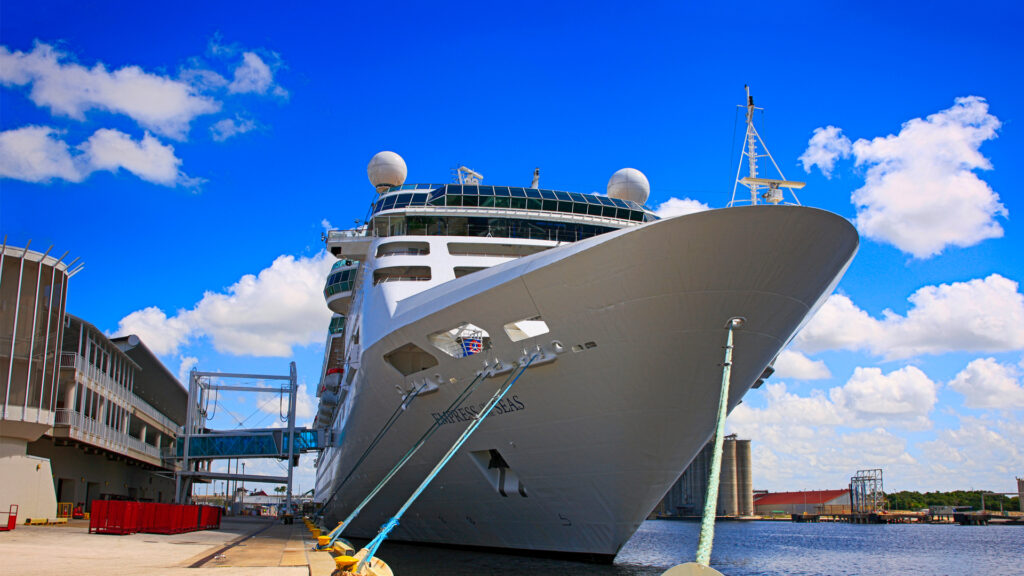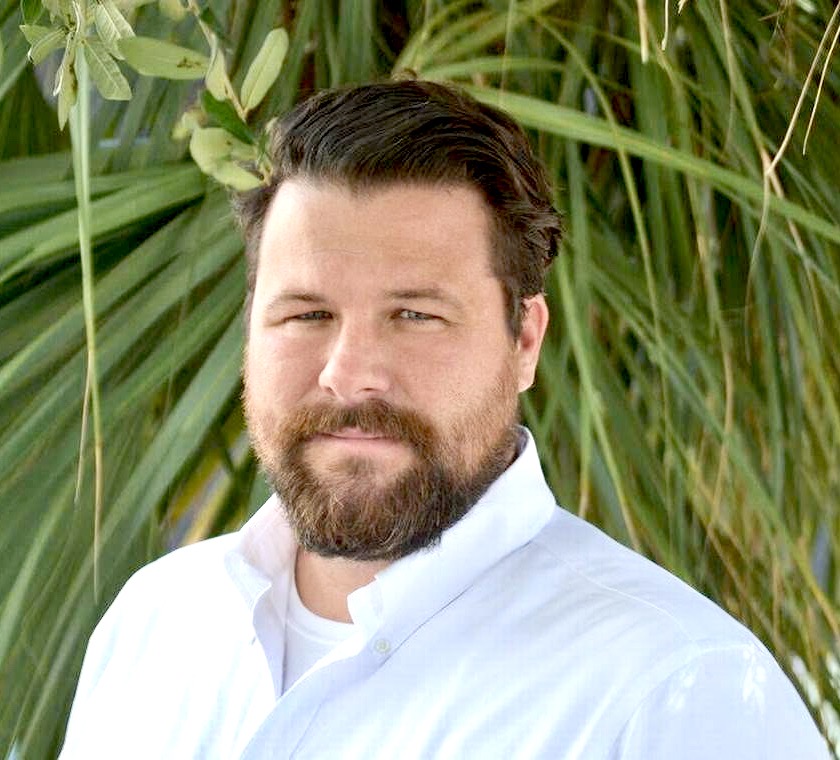By Jon Paul “J.P.” Brooker, Ocean Conservancy
When cruise ships dock at Port Tampa Bay and other ports around the country, they don’t turn off the lights and shut everything down.
Cruise ships are like small towns, and they usually keep things operating while they are docked by running auxiliary engines that continue to emit carbon dioxide and other nasty emissions. Diesel-powered equipment handling cargo and other machinery servicing the ships also threaten air and water quality.

These emissions are particularly concerning at ports in urban areas such as Port Tampa Bay. For decades, the city of Tampa has worked hard to open access to its waterfront and transform it into a destination for residents and visitors alike. The Tampa Riverwalk attracts hundreds of thousands of visitors, museums and other cultural destinations such as The Florida Aquarium are huge draws along the waterfront. The entire area is seeing billions in investment that is bringing new jobs and residents.
We should remain committed to opening up the waterfront for everyone, and we should improve that access by extending Riverwalk behind the port’s Terminal 2 and on to The Aquarium, the Channel District and eventually Ybor City. Yet the sustained success of all of these efforts requires that we ensure we have clean air and clean water. That means we need to address the negative impact cruise ships have on the environment.
Port Tampa Bay should become a national leader in the move toward port electrification, which means providing electric power sources to cruise ships that will allow them to turn off their engines when at port and move away from diesel-powered service equipment. There are billions of dollars in federal funds now available nationwide for these infrastructure investments, and now is the time to do it. This would be a major step toward improving public access to Tampa Bay and the Hillsborough River, preserving the region’s vibrant maritime history, and protecting the economic impact of Florida’s biggest and most diverse seaport. Even more, port electrification in Tampa would have a tremendous positive impact on the local environment.
If maritime shipping were a country, it would be the sixth-largest emitter of carbon dioxide on the planet. Vessels at sea burn dirty bunker fuel and cause huge amounts of pollution to enter the atmosphere. Cruise ships like those that make call at Port Tampa Bay also often sit at the dock with engines running.
Without electrification, all that cruise ship pollution undercuts the public and private investment made in transforming Tampa’s waterfront, undermines efforts to ensure the Hillsborough River and Tampa Bay are environmentally healthy, and threatens the health of residents and visitors who love having such great access to the water. Extending the Tampa Riverwalk past The Florida Aquarium and beyond would be transformative for the downtown landscape, and we should not let polluting cruise ships jeopardize that effort.

Port electrification is a clear solution for this, and there is money available to make it happen. Jacksonville just received federal grants of more than $47 million, including funds from the Maritime Administration, to transition towards electrification and evolve away from their historic fossil fuel-based equipment.
Through its Port Infrastructure Development Program, the Maritime Administration is making billions of dollars available for exactly the kinds of improvements needed in Tampa. And historic investments are also flowing from the Inflation Reduction Act, which provides the Environmental Protection Agency with $3 billion for grants to decarbonize and electrify our nation’s ports.
There has never been a better time for Port Tampa Bay to seek this kind of investment and create a healthier environment that ensures past and future efforts to expand public access to the Tampa waterfront are sustainable.
Jon Paul “J.P.” Brooker is Ocean Conservancy’s director of Florida Conservation and a member of the Admiralty Law Committee of the Florida Bar. He lives in St. Petersburg.
This opinion piece was originally published by the Tampa Bay Times, which is a media partner of The Invading Sea.
If you are interested in submitting an opinion piece to The Invading Sea, email Editor Nathan Crabbe at ncrabbe@fau.edu. Sign up for The Invading Sea newsletter by visiting here.



